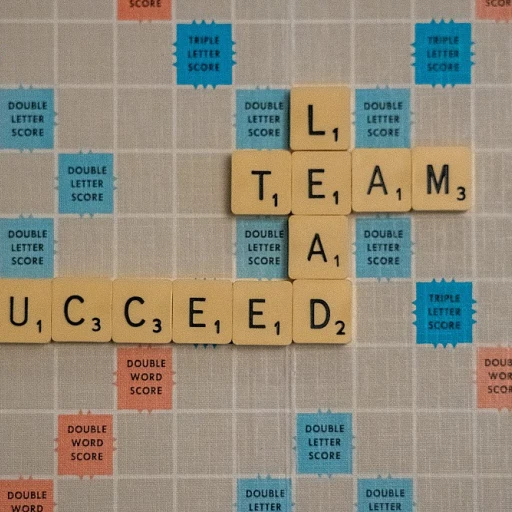
Understanding Coaching Models
Exploring the Foundations of Coaching Models
In the world of human resources technology, understanding coaching models is a crucial step towards fostering better employee development and achieving organizational goals. A coaching model provides a structured framework that helps both the coach and the coachee navigate the often complex process of personal and professional growth. Coaching models stem from the need for a clear, goal-oriented approach to employee development. They incorporate various elements like setting goals, assessing the current situation, and creating an actionable plan to achieve these goals. Coaches work closely with their clients or team members, guiding them through the coaching process to help them reach set objectives. This engagement can include one-on-one sessions, team coaching, or executive coaching to cater to different business needs. The essence of a coaching model is to create a map for achieving a coachee's goals, giving them a defined path to follow and milestones to measure progress. Within the framework, coaches deploy different techniques to help the coachee identify hurdles, formulate action plans, and stay committed to their goals. An effective coach asks thought-provoking questions and employs a solution-focused approach to foster a conducive learning environment. In essence, the best coaching models are designed to support the coachee in understanding their current situation, setting realistic goals, and developing an actionable strategy to achieve them—all while nurturing the client's professional development. These models are not one-size-fits-all; they’re adaptable, ensuring they meet the diverse needs of different individuals and teams within an organization. For more insights into evaluating coaching models and their impact on human resources, consider exploring resources on enhancing employee evaluations using AI-driven tools. This can complement the coaching process by providing data-driven insights into employee performance and progress.Popular Coaching Models in HR Tech
Unveiling Popular Models in the HR Tech Landscape
The world of HR tech is brimming with various coaching models that have proven effective in numerous business settings. Each model offers a unique approach, tailored to different scenarios, and serves distinct goals. From individual employee development to team coaching, these models help create structured frameworks that assist coaches in guiding their coachees towards achieving their desired objectives. Among the most recognized frameworks is the GROW model—a staple in executive coaching. Known for its clarity and goal setting capabilities, the GROW model aids in analyzing the current situation, setting a specific goal, and crafting a well-outlined action plan. By directing focus on what the coachee wants to achieve, this model fosters a straightforward yet impactful coaching process. As the coach helps the coachee navigate through the action steps, it becomes easier to monitor progress and make necessary adjustments. For those interested in team dynamics, the clear model proves invaluable. This approach fosters cohesion among team members, encouraging a solution-focused mindset. The model allows team meetings to remain on track, keeping goals aligned with both individual and collective agendas. Through this, teams can develop a greater understanding of each member's role, contributing to a more synchronized effort. Another popular framework is the action learning model. It thrives on real-time problem-solving, allowing coachees to learn and grow while addressing tangible challenges. Coaches utilize this model to probe deeper, often asking questions that unravel hidden insights, ultimately helping the coachee make informed decisions. For more insights on questions that can elevate performance reviews, I recommend checking out this resource. It offers valuable guidance on structuring effective reviews, a staple for continuous professional development. Each coaching model brings something unique to the table, enabling HR professionals to tailor their strategies according to their clients' unique needs and organizational contexts. As HR tech continues to evolve, these models remain instrumental in fostering adaptable and dynamic development plans.Implementing Coaching Models in HR Systems
Effective Integration for Maximum Impact
Incorporating coaching models into HR systems is your strategic move to enhance professional development across the board. The process starts with understanding the key components of an effective coaching framework. A structured approach involves aligning the coaching methodology with overall business goals. Firstly, identify the appropriate coaching model that suits your organizational needs. Whether it's the popular GROW model or a solution-focused approach, selecting the right model is crucial to success. To implement these models, begin by ensuring your coaches are well-versed in the chosen methodology. Training sessions aimed at understanding the nuances and application of each approach can greatly benefit your coaching team's efforts. It's essential that coaches know how to ask powerful questions, facilitate goal-setting, and create actionable plans with coachees, helping them move from their current situation towards achieving their ultimate goals. Next, integrating technology to support the coaching process ensures scalability and consistency. Leveraging HR tech to track progress, provide feedback, and measure outcomes will become instrumental. Many organizations find success when a clear model is used within the HR system, simplifying the coaching process for both coaches and clients. Additionally, embedding coaching models into existing HR systems offers an opportunity to seamlessly align with performance management and development goals. The synergy between technology and coaching can amplify the impact of well-structured programs, fostering an environment where both individual and team coaching efforts are elevated. For those interested in exploring further details on how to effectively integrate coaching programs, consider exploring implementing effective career development programs in corporations for insightful perspectives and practical tips.Benefits of Coaching Models for Employee Development
Unlocking Employee Potential Through Coaching Models
Coaching models in HR tech are not just about enhancing skills; they are about unlocking the full potential of employees. By integrating structured coaching processes, organizations can significantly impact professional development and team dynamics. Here's how these models benefit employee growth:
- Goal Setting and Achievement: A well-defined coaching model helps employees set clear goals and develop an action plan to achieve them. This structured approach ensures that both the coach and coachee are aligned on the objectives, making it easier to track progress and celebrate achievements.
- Personalized Development: Coaching models allow for a personalized approach to employee development. Coaches can tailor their strategies to fit the unique needs and current situation of each coachee, ensuring that the development plan is relevant and effective.
- Enhanced Team Collaboration: Team coaching models foster better communication and collaboration among team members. By focusing on collective goals and solutions, these models help teams work more cohesively, ultimately improving business outcomes.
- Improved Problem-Solving Skills: Through the coaching process, employees learn to approach challenges with a solution-focused mindset. This not only helps them in their current roles but also prepares them for future leadership positions.
- Increased Employee Engagement: When employees feel supported in their growth journey, their engagement levels rise. Coaching models provide the support and guidance needed to keep employees motivated and committed to their roles.
Implementing effective coaching models in HR systems can transform the way organizations approach employee development. By focusing on goal setting, personalized growth, and team collaboration, these models create a supportive environment where employees can thrive.
Challenges in Adopting Coaching Models
Overcoming Obstacles to Implement Coaching Models
The adoption of coaching models within HR tech systems isn’t without its hurdles. One of the primary challenges faced is resistance to change. Team members and management may be hesitant about altering established routines or worry about the disruption that integrating a coaching model might cause. Another hurdle is finding the right model that fits the current situation and culture of the organization. Not every coaching model will be suitable for every business environment, and choosing the wrong one could lead to frustration and stalled growth. Resource allocation also presents a significant challenge. Implementing a coaching model requires a clear action plan, dedicated coaches, and time, which might strain existing resources. Ensuring that there are enough qualified coaches to deliver the intended coaching process effectively is crucial for success. Furthermore, measuring the effectiveness of the coaching efforts can be difficult. Without proper metrics, it is hard to determine if the coaching provided is truly leading to professional development and helping employees achieve their goals. This often necessitates developing a tailored solution focused on clear goal setting and outcomes. Lastly, coaching models’ success depends heavily on the commitment of all parties involved. From the coach who develops and guides the program to the coachee who participates in it, everyone must buy into the process to achieve the best results. While the challenges are substantial, recognizing and addressing these issues effectively can ensure a smoother transition to integrating coaching models within HR systems.Future Trends in Coaching Models and HR Tech
Emerging Innovations and Projections in HR Tech Coaching
The landscape of coaching in HR tech is continuously evolving, with new models and techniques being developed to address the dynamic needs of businesses and their employees. As organizations seek to enhance the impact of coaching on professional development and goal achievement, several trends are shaping the future of this field.- Customizable Coaching Solutions: The move towards more tailored approaches is gaining traction. Companies are increasingly looking for models that can be customized to the specific goals and situations of their teams and individuals. This ensures that coaching is relevant and effective in helping coachees achieve their personal and professional objectives.
- Integration with Technology: Advancements in technology, such as Artificial Intelligence and machine learning, are being integrated into coaching models. These technologies help in tracking progress, setting clear goals, and providing real-time feedback to both coaches and coachees. This leads to more solution-focused and efficient coaching processes.
- Team Coaching Evolution: As businesses recognize the importance of team dynamics in achieving organizational goals, there is a growing focus on team coaching. This approach helps strengthen team members’ relationships, fosters collaboration, and aligns the team’s collective efforts with the company’s objectives.
- Focus on Well-being: The shift towards prioritizing employee well-being in tandem with goal setting reflects a broader understanding of the role of holistic support in achieving sustainable success. Coaches now often incorporate strategies to support mental health and overall well-being in their coaching plans.













